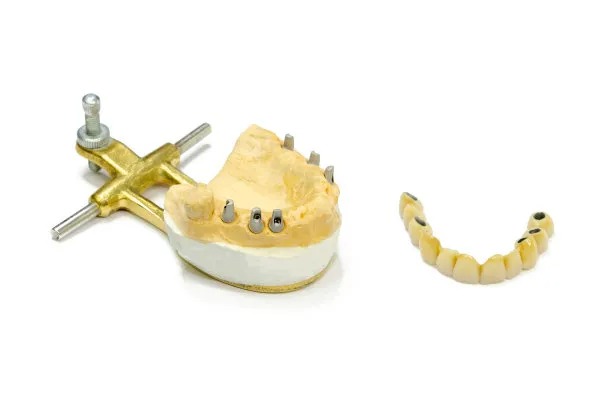Summary: Undergoing dental implant surgery can significantly improve oral functionality and boost self-confidence. However, to ensure optimal results and a smooth recovery, it is crucial to follow essential guidelines and precautions prior to the procedure. This article explores four key aspects: understanding the procedure, maintaining oral hygiene, preparing for surgery, and managing expectations. Each section provides critical insights to help patients navigate their dental implant journey while minimizing complications and enhancing overall satisfaction. By adhering to these guidelines, individuals can pave the way for a successful dental implant surgery and promote the best healing experience.
1. Understand the Dental Implant Procedure

Before embarking on the surgical journey, its imperative to fully comprehend what dental implant surgery entails. This involves the placement of titanium posts into the jawbone, which serve as artificial roots for missing teeth. Understanding this process can alleviate anxiety and help set realistic expectations.
Consultation with a qualified dental professional is a crucial first step. During this visit, a thorough evaluation of the patient’s dental and medical history takes place. This assessment ensures that the individual is a suitable candidate for the procedure.
Moreover, patients should inquire about the types of implants available, the specific techniques that will be used, and anticipated recovery time. Being informed allows for better preparation and contributes to a more positive surgical experience.
2. Maintain Excellent Oral Hygiene
Good oral hygiene is paramount before undergoing dental implant surgery. Patients should maintain a thorough daily routine, including brushing, flossing, and using mouthwash to remove plaque and reduce the risk of infection. The healthier the mouth is before surgery, the better the outcomes post-operation.
Additionally, dental cleanings should be performed leading up to the surgery. Regular visits to the dentist can help ensure that any underlying issues, such as gum disease or cavities, are treated promptly. This preventive care minimizes complications following the placement of the implant.
Moreover, it’s beneficial to avoid tobacco and excessive alcohol consumption before the surgery. Smoking and drinking can impair healing and increase the risk of infection which can jeopardize the success of the implant integration into the bone.
3. Prepare for the Surgery Day
Preparation for the surgery day itself is vital to achieving optimal results. Patients should ensure that they have a support system in place, as transportation to and from the dental facility will be necessary. If sedation or anesthesia is involved, its crucial to arrange for someone to accompany you.
Furthermore, adhering to the dentist’s pre-operative instructions is essential. This may include dietary restrictions, such as avoiding food and drink several hours before the surgery. Being properly prepared can help avoid complications and ensure that the procedure proceeds smoothly.
Lastly, it’s advisable to have a recovery plan in place. Knowing what to expect, such as pain management and dietary adjustments, can facilitate a faster recovery and lessen post-operative stress.
4. Manage Your Expectations and Emotional State
Managing expectations is crucial for a successful dental implant journey. Understanding that initial discomfort and swelling are normal parts of the healing process can help patients remain positive and patient during recovery.
Its also important to foster a supportive emotional environment. Dental surgery can generate anxiety, so discussing concerns with the dental team can provide reassurance. They can offer strategies to cope with any pre-surgery jitters, making the experience more manageable.
After the surgery, patients should give themselves time for healing. Regular follow-ups with the dentist are essential in monitoring healing progress and addressing any concerns, reinforcing a sense of confidence in the procedure.
Summary:
In conclusion, thoroughly understanding the dental implant procedure, maintaining excellent oral hygiene, preparing adequately for surgery, and managing expectations are essential guidelines and precautions that patients should follow to ensure optimal results and a smooth recovery. Each of these elements contributes significantly to the overall success of the dental implant experience.
This article is compiled by Vickong Dental and the content is for reference only.
Vickong Dental
Vickong Dental is a large medical group established in Hong Kong in 2008 by professors from well-known medical universities in Guangdong and Hong Kong, as well as medical doctors from key national '985' universities (including Master's supervisors and senior professors). The chain of branches brings together expert dentists with PhDs and Master's degrees from Hong Kong and Mainland China, committed to providing high-quality dental treatment.
"Vickong Dental Practices the University Motto of 'Healing and Serving Society,' with a Stable Operation for Sixteen Years. It Has Been honored with Hong Kong Enterprise Leaders's Choice,' and is a Global Trusted Implant Center for the Nobel Implant System. Recommended by Hong Kong Metro Broadcast and Guangdong Television, it Serves Customers from Over Thirty Countries and Regions, Gaining the Trust and Favor of Citizens from the Guangdong-Hong Kong-Macau Greater Bay Area and Surrounding Cities.

Thousands of customers' unanimous praise
The most recognized and highly recommended dental service by customers in the Guangdong-Hong Kong-Macau Greater Bay Area
We Ensure You Receive Detailed Care and Attention Here
Hong Kong standards, Shenzhen prices, Your Trusted English-speaking dentists

Vickong Dental Medical-Grade Instrument Disinfection Process
Vickong Dental Medical-Grade Instrument Disinfection Process

Vickong Dental Chain: A Warm and Comfortable Environment for Treatment






Appointment Hours

Q&A
Why choose Vickong Dental?
Vickong Dental practices the university motto 「Medicine to Benefit Society」, with each branch bringing together highly qualified dentists with doctoral and master’s degrees from Hong Kong and the Mainland, and has maintained seventeen years of steady operation。Recipient of 「2024 Hong Kong Enterprise Leaders Brand」, 「2025 Hong Kong Enterprise Leaders Brand」, a Nobel Biocare Global Trusted Implant Center, and a brand recommended by Metro Radio Hong Kong and Guangdong TV。
To date, we have served customers from more than thirty countries and regions,earning exceptionally high word-of-mouth recognition and trusted recommendations from residents across the Guangdong-Hong Kong-Macao Greater Bay Area and surrounding cities
We have eight major branches in Zhuhai、Shenzhen,and a consultation and service assurance center in Hong Kong,so you can book a free consultation at any time for any questions,which is very reassuring.
If I do not accept the quotation after the CT scan, will I be charged??
No! As long as the actual treatment has not started, you will not be charged any fees.
Will there be any additional charges during the treatment process?
No, there won’t be any additional charges. Before treatment begins, we will clearly explain the treatment plan and its corresponding fees. Only after the patient agrees and signs the consent form will we proceed with the dental service.
Can I pay in Hong Kong dollars?
Yes. Vickong Dental accepts payment in Hong Kong dollars. The amount will be converted based on the exchange rate of the day, and the applicable rate will be clearly communicated to you in advance.
Can I reschedule my appointment at any time?
Yes. Please contact us via **WeChat** or **WhatsApp** as early as possible, providing your original appointment time and details, along with your preferred new date and time slot for rescheduling.













